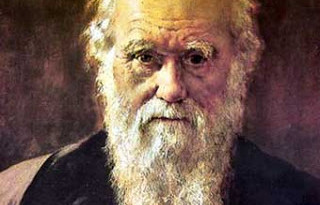 Today is 200 years since Charles Darwin was born. You’ll probably already be aware of this, especially you’ve been watching the BBC recently, in which case you’ve probably not been able to go for five minutes without tripping up over one of their programmes in their Darwin season.
Today is 200 years since Charles Darwin was born. You’ll probably already be aware of this, especially you’ve been watching the BBC recently, in which case you’ve probably not been able to go for five minutes without tripping up over one of their programmes in their Darwin season.
Evolution remains a controversial subject among evangelical Christians such as myself.There are many passionately held beliefs on both sides – those who believe in a literal six day creation around 6,000 years ago, and those who insist that science is right and the Creation account must be interpreted symbolically.
Even in wider society, the relationship between science and faith is a hot potato, as Professor Michael Reiss discovered when he was forced to resign his position with the Royal Society for comments that teachers should engage with Creationism as a worldview (as distinct from science) in the classroom. He’ll be giving a lecture at Cardiff University entitled Discussing Darwin: can science ignore faith? next Tuesday – details on the Cardiff Uni website.
When I was younger, I argued strongly for Young Earth Creationism, having been brought up by my parents with Creationist beliefs. Since coming to university, my views have changed, and I’m more inclined to the view that God worked through evolution, and that Creationism is a mistake, though a well-intentioned one.
If you’re not a Christian, you may well be thinking how anyone can possibly be so nutty that they believe in something like Creationism. I’ll try and explain that a bit in another blog post, showing the thinking behind it and why it isn’t as stupid as many people think.
Instead, the rest of this blog post is largely directed at Christians. How should Christians respond to all the attention being given to Darwin and to evolution?
1. Agree on the basics
Christians can all agree that God is the Creator, no matter how he did it. God is powerful and certainly can work miracles and isn’t bound by the “laws of science”, and science isn’t the only and best way to discover truth. The success of science doesn’t disprove Christianity or prove atheism – science developed out of the Christian worldview and can be entirely compatible with it.
2. Be gracious in disagreement
Sometimes Christians can be far too quick to denounce those we disagree with. It isn’t helping anything to shun Creationists as ignorant rednecks, or to brand all Theistic Evolutionists as compromising libruls. The question of origins and its theological implications are important, but our unity in Christ and the central message of the Gospel are more important still.
3. Know what you’re talking about
There are lots of straw-men arguments and badly informed arguments, especially on the Internet. If you’re going to argue about it, make sure you take time to understand the scientific, theological and cultural issues. It doesn’t help the Gospel if Christians show themselves to be ignorant and unable to engage with what other people are actually saying.
4. Point people to Jesus
If you’re trying to persuade people to consider Christianity, you need to get them to consider Christ. Yes, Christians should be interested in the world around us, and interested in what science has to say, and we should be concerned for truth. And yes, for some people, “what about the dinosaurs?” is a genuine question, and they need an honest answer (though for many it’s a diversionary tactic). But the first place we should point people is not the details of the science of creation, but Jesus dying and rising out of love for us so that we can know God.

